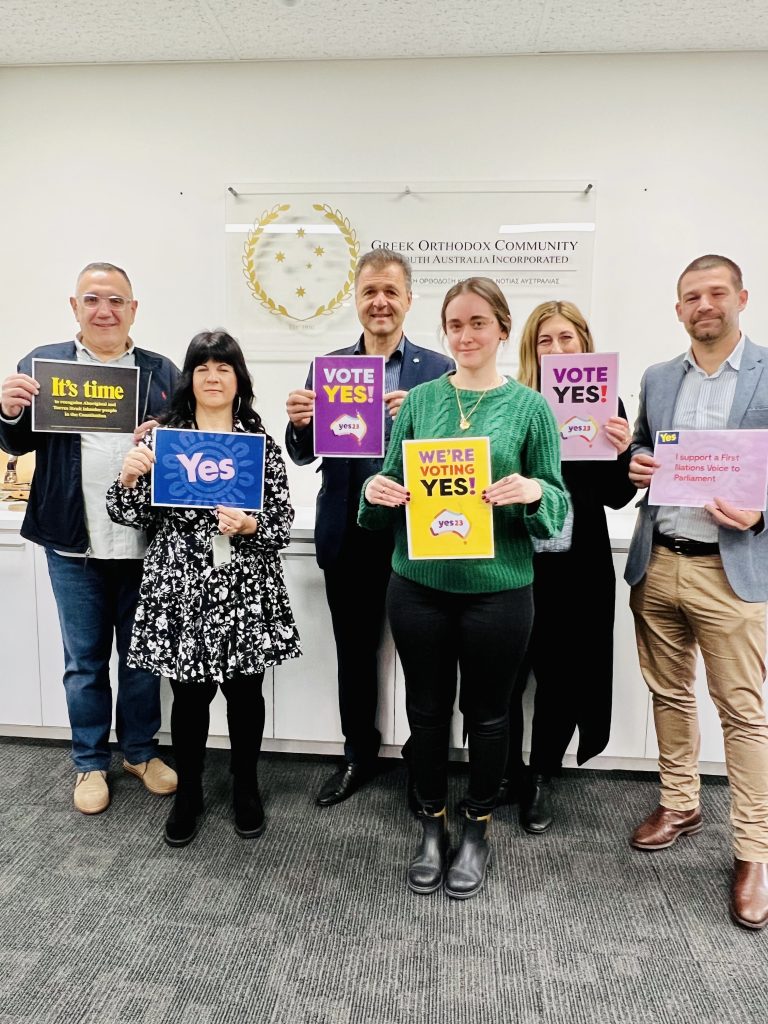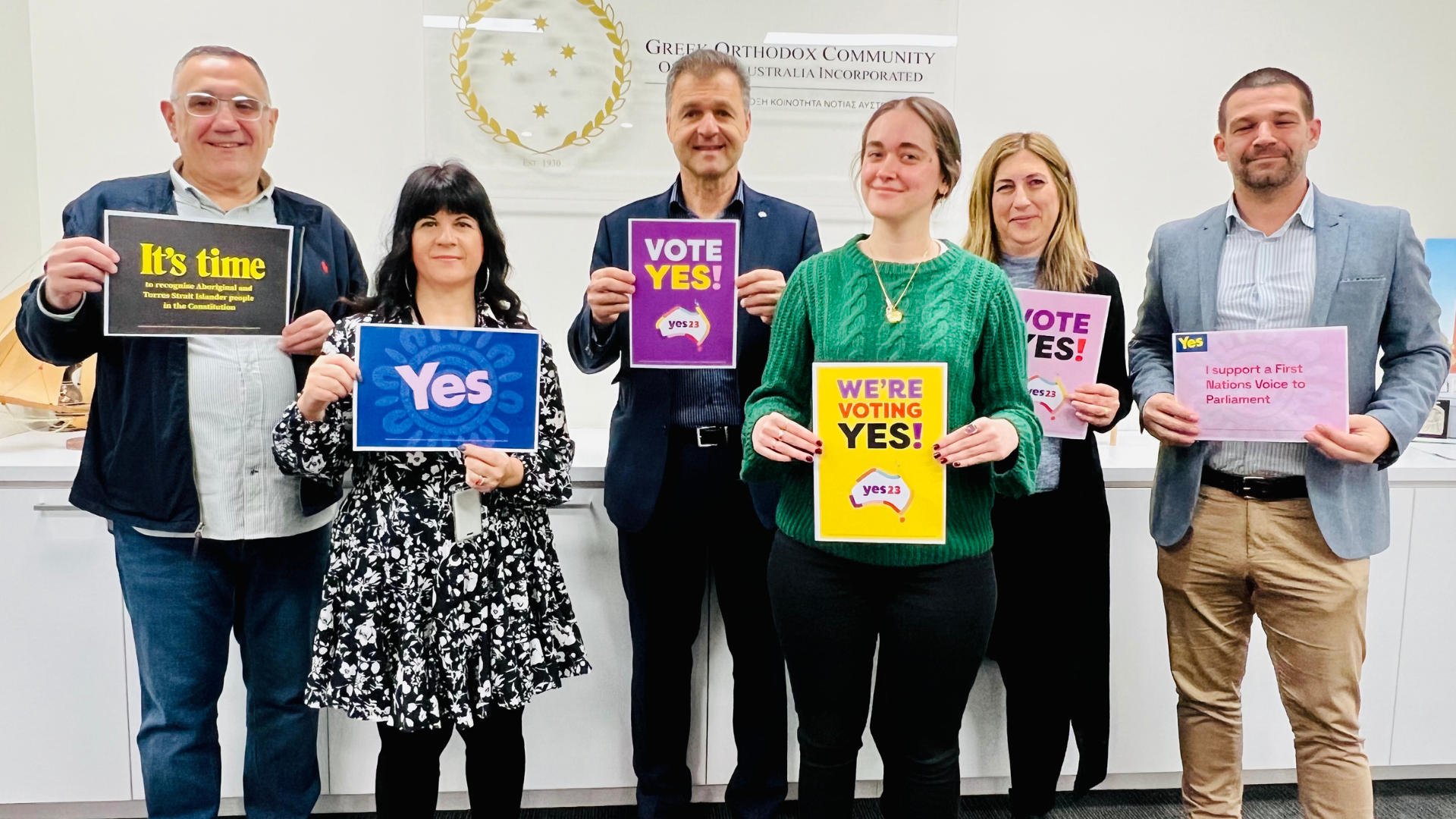As one of South Australia’s largest ethno-specific organisations established in 1930, the Greek Orthodox Community of South Australia (GOCSA) today reaffirmed its commitment to the Uluru Statement and the call for a Voice for First Nations people.
GOCSA President Peter Gardiakos said that by becoming a signatory to the Joint Resolution of Multicultural Community Organisations, GOCSA commits its steadfast support for a ‘Yes’ vote in the upcoming Voice referendum.
“As a proud Australian with Greek heritage, I believe it is our responsibility to actively contribute to the creation of a more just and inclusive society for all, including honouring and supporting First Nations people. Supporting the First Nations Voice to Parliament is a crucial step towards recognition and reconciliation,” Mr Gardiakos said.

“The success of this referendum is the responsibility of all Australians regardless of faith or cultural and linguistic background. As migrants and descendants of migrants, we recognise the importance of having a voice in your community’s affairs and we stand with Indigenous Australians for the simple yet profound recognition they seek: a route to help inform policy decisions that impact their lives.”
GOCSA began a journey of reflection 23 years ago, on its 70th anniversary, which culminated in a commitment to reconciliation and the release of a statement in support of the reconciliation process with the First Nations people and the need to fix the exclusion and discrimination of the past.
“By pledging our support for the Voice we join in with 120 multicultural organisations from across the country showing that we are here and ready to engage in this conversation in order to bring people together for the future of our nation,” Mr Gardiakos said.

